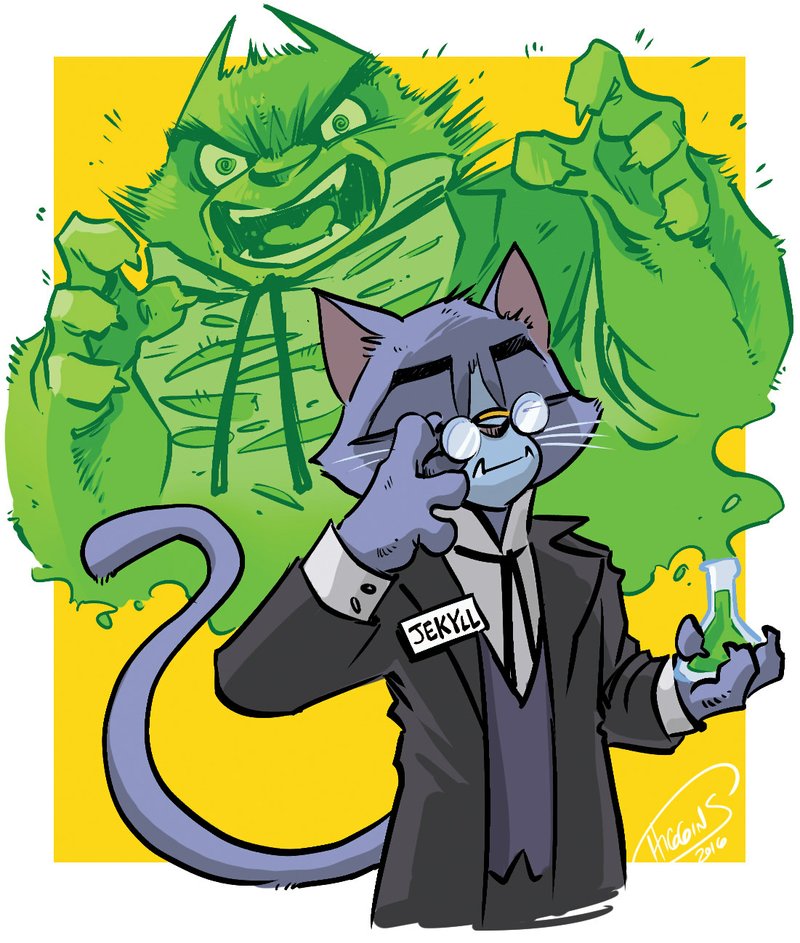I have a problem with my cat that maybe you can help with. She's friendly most of the time, but sometimes when I'm petting her she gets crazy and starts attacking me with her back feet and claws. She even tries to bite me. She's not a mean cat. Why is she acting so weird? I took her to the veterinarian and she checked out fine.
I feel your frustration. One of my cats, a yellow tabby named Oscar, was a rough player. Normally a sweetie, he could become a beast when being petted. Most of the time, I could pet him only a minute or two before he began clawing and trying to bite me.
The first time Oscar transformed into a wild thing was a day after I returned from a two-week vacation. I was stunned because Oscar had never before behaved aggressively. Later, I learned that the friend with whom I had entrusted then-3-month-old Oscar with during my absence had played with my cat by enticing him with his fingers and hands. He allowed Oscar to "wrestle" with his arm and encouraged him to play rough. Oscar loved it and, for the rest of his life, he engaged in what behaviorists call "petting-induced aggression."
Unfortunately, Oscar had learned that hands and petting equaled play time. Through rough play with my friend, he lost the "bite inhibition" that kittens typically learn from their mothers, littermates and even owners. During the prime socialization period -- when kittens are 2 to 7 weeks old, but even up to 14 weeks -- kittens learn how to behave, according to Vetstreet.com. Their mothers correct them when they get too rough, plus they learn to inhibit their bite while playing with their siblings.
A kitten that's taken from its family too young may not be well socialized. That's a possibility with your cat. Or, like Oscar, perhaps she somehow picked up the habit of reacting aggressively to petting from some well-meaning person. A third answer could be that the behavior is natural for your cat.
Not all cats develop bite inhibition, but simply have personalities that incline them to be more aggressive, according to Nicholas Dodman, director of the Animal Behavior Clinic of the Cummings Veterinary Medical Center at Tufts University. They'll sit in a owner's lap and allow themselves to be petted, but will quickly tire of the attention and lash out, he says in a blog post at tuftscatnip.com. Suddenly and without warning -- or so it seems -- the cat becomes irritable and agitated.
Dodman and feline behaviorist Pam Johnson-Bennett, author of Psycho Kitty and other books about cats, say that there are always warning signs that a cat has had enough petting. Owners need to learn to recognize them so they can stop a petting session before it becomes unpleasant.
Warning signs to heed include dilated pupils, tail lashing, tail thumping, skin twitching, ears flattened against the head, meowing and growling. With Oscar, I realized that his eyes would start following the movements of my hand before an attack. He also shifted his body weight and thumped his tail. He couldn't help himself at that point; if I continued petting him, he'd bite. I learned to read his body language and stop petting before he became agitated. Then all was well. I just had to know his limits.
In an article at catbehaviorassociates.com, Johnson-Bennett recommends keeping petting sessions short and ending them before the warning signs begin. That way, the cat associates positive feelings with petting. Over time, a cat's feeling that the only way to end petting is with aggression may wane.
It's also helpful to pay attention to where on her body that your cat likes to be petted. For instance, she may like being stroked on the back, but not at the base of the tail. Stick to where she enjoys petting and avoid the red-flag areas.
If your cat becomes irritated during petting despite all your best efforts, Dodman's advice is to stand up, let the cat slide to the floor and walk away. Don't punish your cat or attempt to control her because that could make her more irritable. Just let it go and respect your cat's limits.
Family on 05/25/2016
